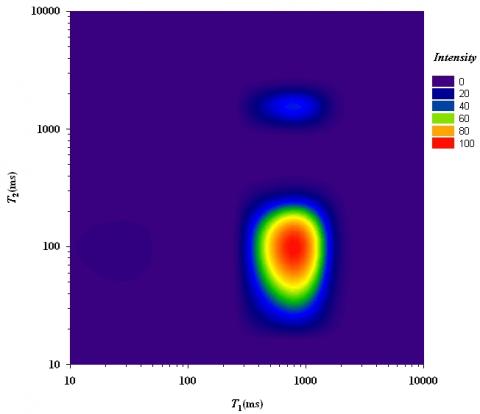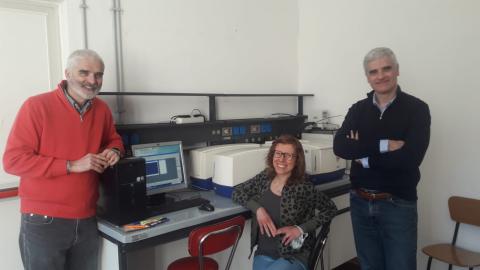Soft Matter and Drug Release
Description
The research group is multidisciplinary and focusses on the characterization of soft materials by means of Low Field NMR and rheology with particular emphasis on the sputum of patients affected by chronic obstructive pulmonary diseases (COPD and Custic fibrosis).
In addition, modeling of drug release from delivery systems and drug absorption by living tissues is another goal of this group. In this frame, particular care is devoted to study the peculiar properties of nanostructures such as nanocrystals.
Keyword 1: Soft Matter
Keyword 2: Low field NMR
Keyword 3: Rheology
Keyword 4: mathematical modelling
Keyword 5: drug release and absorption
Head of the research group
List of members in the research group
Mario Grassi - PO - ING-IND/24
Michela Abrami - Assegnista - ING IND/24
Alice Biasin - Dottoranda - ING IND/24; BIO/12
Gabriele Grassi - PO - BIO/12
Research projects
1) FONDO TRIESTE: 2006 (2006-2007) - Applications of Low Field NMR in the food, pharmaceutical and biotechnological fields
2) PRIN: 2008 (2008HCAJ9T: 2010-2012): Designing and optimisation of polymeric matrices for the delivery of nucleic acid based drugs (NABD)
3) PRIN 2010-11 (20109PLMH2; 2013 – 2016): Identification of optimal delivery systems for the Nucleic Acid Based Drugs and study of the action mechanisms in some models of human tumoral and inflammatory pathologies
4) POR-FESR: 2016 (2016-2017) - Biotechnological Fluorimetric Detector for the personalized diagnostic
5) PRIN 2022 (2022K4Y33B: 2023-2025) - Relationship between mucus structure and water magnetic relaxation: a link toward the use of LF-NMR to monitor the clinical conditions of COPD and CF patients
6) THIRD PARTIES
Name of the laboratories
LF-NMR:
1) Bench Low field NMR (Minispec mq20, Bruker, 0.47 T) equipped with measurement probes for hydrogen, phosphorus and fluorine and unit for gradient measurements.
2) UV spectrophotometer (ZEISS MC600) and optical fiber (Hellma) with probes of 1, 2, 5, 10 and 20 mm optical path. Wavelength range 215-620 nm. Thermostatic glass cells for the study of the release of active ingredients and water / oil partition of active ingredients
3) Drop tensiometer (pendant / sessile) G10 (Kruss GmbH) with camera
RHEOLOGY
1) Control stress Rheometer RS 150 Rheostress (Haake)
2) Control stress MARS III (Thermoscientific), torque range 3 nNm - 0.2 Nm, speed range (CS) 10-7 - 1500 rpm, (CR) 10-8 - 1500 rpm, frequency range 10-5 - 100 Hz, Nf -50 / +50 N.
3) Immersion tensiometer K12 Kruss





